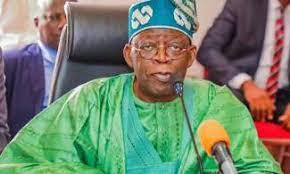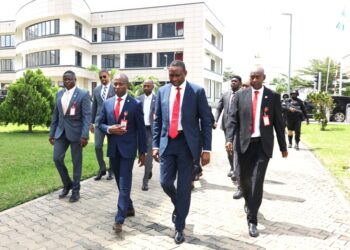…Insurers jitter over liabilities
As the dust from the #EndSARS protests settles down, it is a time of reckoning for insurance companies in Nigeria.
A time of unforeseen circumstances causing huge damages to insured objects is a time to gauge the preparedness and evaluate the financial capacities of the insurers in managing the risk events vis-à-vis indemnifying for losses suffered by their clients.
The hijacked #EndSARS protests have come and gone, but the smoke raised by the trailing losses/damages are still with the insured and are quite humongous to sink the boat of the entire insurance industry put together, if not properly managed.
From the emerging reports, Lagos state alone requires a whopping sum of N1 trillion to resuscitate the vandalized infrastructures. The concern expressed by many stakeholders is the total costs accruable if all the vandalized infrastructures were fully insured – as the resultant claims could swallow up the insurance industry.
It is not yet clear how much of these assets were appropriately insured but considering that our insurance culture is quite low amongst both the private and public sectors, there is a strong likelihood that some of the vandalized assets might not have been appropriately insured or insured at all.
Recent findings show the capital base of some frontline insurance companies in Nigeria and are persuaded to believe that they have the capacity to withstand the vagaries of the emerging losses and still stand strong, considering their excellent past claims settlement history to date.
Leadway Assurance
It is a privately-owned insurance company, whose financial capacity grew over time and can now underwrite risks of very high costs, as regards heavy industries like Oil and gas and big manufacturing concerns.
It has a capital base in excess of N45 billion, according to its 2019 financial statements and a gross premium was about N89 billion.
In 2019, it settled claims amounted to about N38.5 billion.
Axa Mansard Insurance
It was formerly known as Guaranty Trust Assurance Plc, following the acquisition of its majority shareholding by Guaranty Trust Bank Plc.
Results for the period ended 31st December 2019 reveal that the company has shareholders’ funds of N30 billion and a gross premium income of about N41.6 billion.
About N17.5billion was settled as claims within the period.
AIICO Insurance Plc
This is one of the largest Life Insurance companies in Nigeria and a primary underwriter for general insurance businesses, as well as a key player in the oil and gas industry.
As of 2019 year-end, the capital base of the company was N27.9 billion, with a gross premium income of N50 billion.
N25.4 billion was settled as claims.
Custodian and Allied Insurance Plc
As of December 31, 2019, the company was capitalized to about N19 billion, with a gross premium income of N25.2 billion.
It settled the sum of N2.3 billion as claims from clients within the period.
Linkage Assurance Plc
The company is a product of a merger of two major insurance companies – Central Insurance Company Limited and Linkage Assurance Plc, to form a new and bigger Linkage Assurance Plc.
Results for the period ended 31st December 2019 indicates that the company has shareholders’ funds of about N19 billion and a gross premium income of about N6.3 billion.
About N1.7 billion was settled as claims within the period.
Bottom line
There is no doubt that the amount of damages is quite huge but the industry has the capacity to absorb the financial shock that could arise from the legitimate resultant claims connected with the hijacked #EndSARS crisis, as the frontline insurance companies are reasonably capitalized with excellent claims settlement histories.
The number of properties destroyed by hoodlums across the country in the wake of the #EndSARS protests has become a source of concern to underwriters.
There are indications that many of those who lost their property to the protests would be entitled to claims. This poses a huge challenge to insurance companies.
Specifically, an industry analyst, who spoke to The Guardian, at weekend, said that all fire and special peril policyholders who have renewed their policies and suffered losses would be adequately compensated.
The expert explained that fire insurance policy cover grants protection for extraneous peril on request which may be covered on payment of additional premium, like the peril of storm, riot and strike.
In the past week, many assets were destroyed or burnt by hoodlums. While many such assets may have been insured, a few pay the appropriate premium.
According to the analyst, this could pose a challenge to many people who may have lost their properties. He noted that no underwriter would delay or refuse to pay a claim to a policyholder whose premium is up-to-date.
“Regrettably, the blame is always wrongly put at the doorstep of insurance companies, which the regulator is battling to correct,” he said.
The Managing Director/Chief Executive Officer, Universal Insurance Plc, Ben Ujoatuonu, who spoke on the development, said insurance companies would pay for every cover that extends to riot and commotion, but will not pay for covers that exclude riots and commotion.
He said: “it depends on the cover the company or individual has bought. If the policy excludes riot and civil commotion, then the insured will not receive any indemnity from his insurance company.”
He however said that some policies might have been extended to cover riot and civil commotion, in such situation liability will attach.
He stressed that for most of the companies that arranged their insurance through brokers, there is every likelihood that they would have bought such extension.
He also frowned on the situation in the country, and acknowledged that it is not the best of time for the insurance industry in Nigeria especially after the covid -19 paramedic which affected global businesses.




